
Luganville: The Hidden Gem of Vanuatu
Nestled on the island of Espiritu Santo, Luganville is a charming town brimming with natural beauty and rich history. As the second-largest city in Vanuatu, Luganville offers a unique blend of serene beaches, lush jungles, and World War II relics that captivate the hearts of travelers. The town is a gateway to some of the most stunning diving spots in the world, including the famous SS President Coolidge wreck and the vibrant coral reefs of Million Dollar Point. Luganville's vibrant culture is another highlight for visitors. The local markets are a bustling hub of activity, offering an array of fresh produce, handmade crafts, and traditional Melanesian cuisine. The warm and welcoming locals are always eager to share their customs and stories, providing an enriching cultural experience. Don't miss the chance to attend a traditional dance performance or participate in a kava ceremony to truly immerse yourself in the local way of life. Adventure seekers will find plenty to do in and around Luganville. From kayaking through the crystal-clear waters of the Riri Blue Hole to exploring the lush Vatthe Conservation Area, there is no shortage of outdoor activities. The town itself is a walkable delight, with colonial-era buildings and picturesque waterfront promenades offering endless photo opportunities. Whether you're looking to relax on pristine beaches, dive into underwater wonders, or delve into the island's history and culture, Luganville has something for everyone.
Local tips in Luganville
- Visit the local markets early in the morning to get the freshest produce and handmade crafts.
- Bring sturdy water shoes for exploring the blue holes and waterfalls.
- Learn some basic Bislama phrases; locals appreciate the effort.
- Check the diving conditions and book your dive trips in advance, especially for the SS President Coolidge wreck.
- Respect local customs and traditions, especially when participating in cultural activities like kava ceremonies.
Luganville: The Hidden Gem of Vanuatu
Nestled on the island of Espiritu Santo, Luganville is a charming town brimming with natural beauty and rich history. As the second-largest city in Vanuatu, Luganville offers a unique blend of serene beaches, lush jungles, and World War II relics that captivate the hearts of travelers. The town is a gateway to some of the most stunning diving spots in the world, including the famous SS President Coolidge wreck and the vibrant coral reefs of Million Dollar Point. Luganville's vibrant culture is another highlight for visitors. The local markets are a bustling hub of activity, offering an array of fresh produce, handmade crafts, and traditional Melanesian cuisine. The warm and welcoming locals are always eager to share their customs and stories, providing an enriching cultural experience. Don't miss the chance to attend a traditional dance performance or participate in a kava ceremony to truly immerse yourself in the local way of life. Adventure seekers will find plenty to do in and around Luganville. From kayaking through the crystal-clear waters of the Riri Blue Hole to exploring the lush Vatthe Conservation Area, there is no shortage of outdoor activities. The town itself is a walkable delight, with colonial-era buildings and picturesque waterfront promenades offering endless photo opportunities. Whether you're looking to relax on pristine beaches, dive into underwater wonders, or delve into the island's history and culture, Luganville has something for everyone.
When is the best time to go to Luganville?
Iconic landmarks you can’t miss
Vanuatu National Museum
Explore the cultural heritage of Vanuatu at the Vanuatu National Museum, where vibrant history and captivating artifacts tell the stories of the islands.
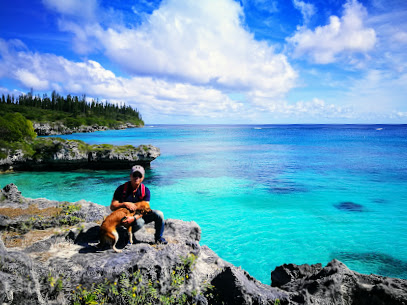
Nanda Blue Hole
Explore the Nanda Blue Hole in Vanuatu, a stunning natural wonder with crystal-clear waters perfect for swimming and snorkeling.
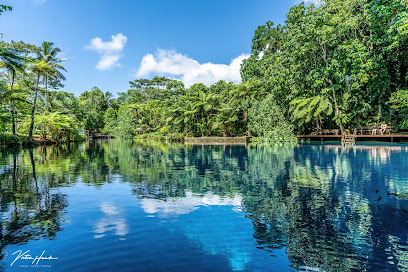
Champagne Beach
Explore Champagne Beach in Vanuatu, a stunning tropical paradise with pristine sands, crystal-clear waters, and vibrant marine life perfect for relaxation and adventure.
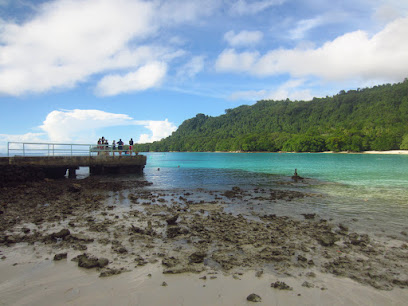
Aore Island Resort
Discover ultimate relaxation at Aore Island Resort with stunning views, vibrant marine life, and unforgettable island experiences.

Matevulu Blue Hole
Experience the enchanting beauty of Matevulu Blue Hole in Vanuatu, a captivating natural wonder perfect for swimming, snorkeling, and relaxation.
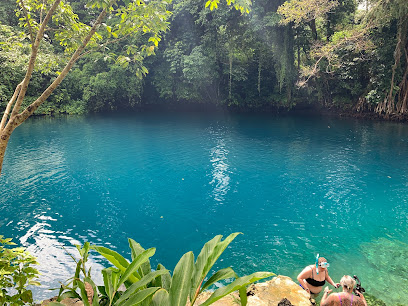
The Espiritu Hotel
Experience the charm of Vanuatu at The Espiritu Hotel, where comfort meets adventure in stunning Espiritu Santo.
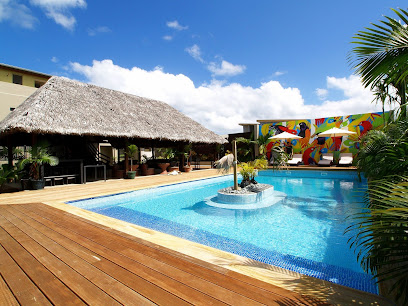
Barrier Beach Resort
Discover paradise at Barrier Beach Resort, Luganville - a serene escape with stunning views, luxurious accommodations, and unforgettable experiences in Vanuatu.

Million Dollar Point
Discover the unique underwater history and vibrant marine life at Million Dollar Point in Luganville, Vanuatu - a diver's paradise.
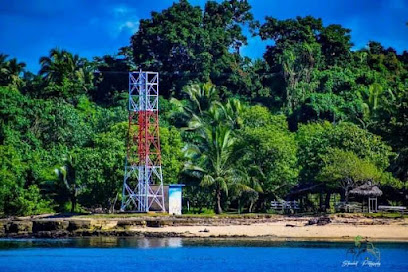
Riri Blue Hole
Explore Riri Blue Hole, a serene paradise in Vanuatu's Espiritu Santo, perfect for swimming and reconnecting with nature.
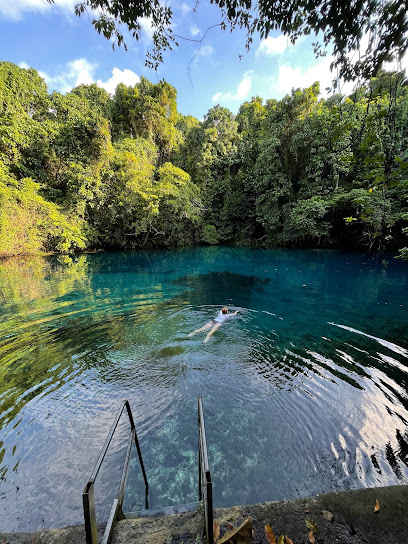
Espiritu Santo
Explore the natural beauty and vibrant culture of Espiritu Santo, Vanuatu's largest island, offering stunning beaches and rich local traditions.
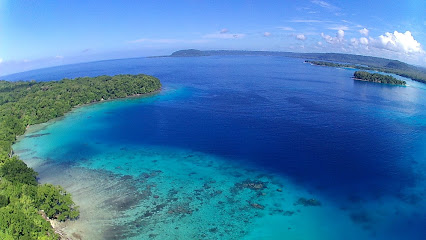
Deco Stop Lodge
Experience the serene comfort of Deco Stop Lodge in Luganville, Vanuatu, your perfect base for adventure and relaxation amidst tropical beauty.

Matevulu Lodge
Discover the tranquil beauty of Matevulu Lodge in Vanuatu, where comfort meets nature on the stunning East Coast of Espiritu Santo.
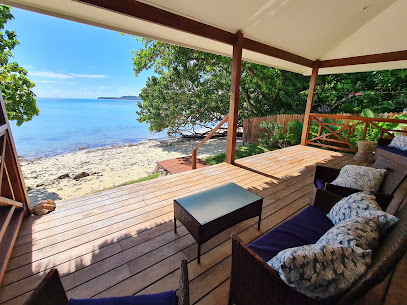
Millennium Cave
Discover the breathtaking beauty and adventure of Millennium Cave in Fwimatal, Vanuatu – a hidden gem for hiking enthusiasts and nature lovers.
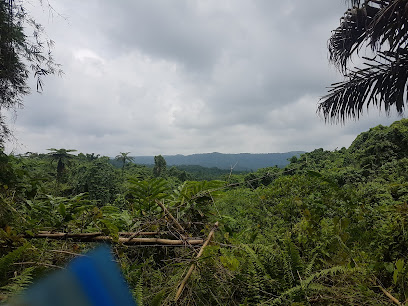
Beachfront Resort
Discover the perfect blend of relaxation and adventure at the Beachfront Resort in Luganville, Vanuatu, where stunning ocean views meet luxury accommodations.

Aore Adventure Sports & Lodge
Discover the underwater treasures of Aore Island at Aore Adventure Sports & Lodge, a top diving destination in Espiritu Santo, Vanuatu.
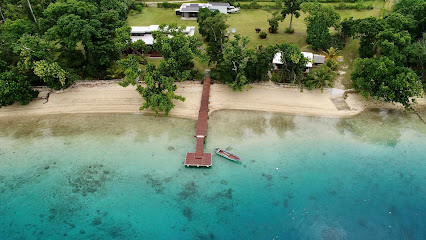
Unmissable attractions to see
Nanda Blue Hole
Experience the breathtaking beauty and tranquil waters of Nanda Blue Hole in Vanuatu, a must-visit natural attraction for every traveler.
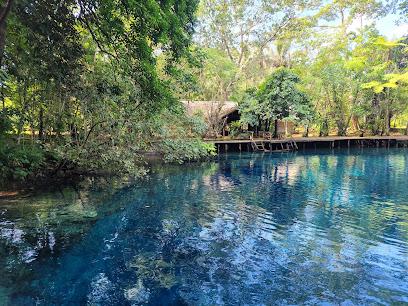
Million Dollar Point
Explore the underwater treasures and historical remnants of Million Dollar Point in Luganville, Vanuatu, where adventure meets history.
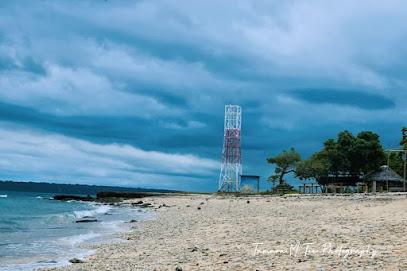
Millennium Cave
Experience the breathtaking beauty of Millennium Cave in Fwimatal, a premier hiking destination that blends adventure with stunning natural landscapes.
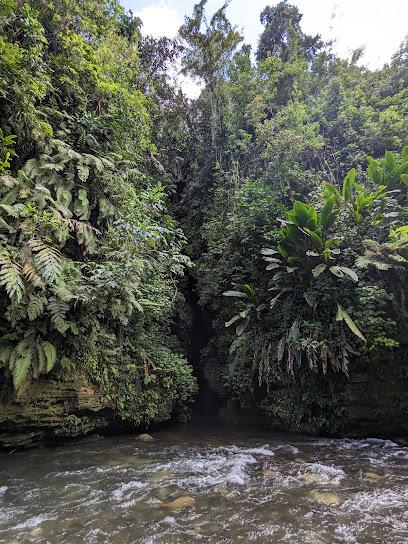
Freshwater Plantation - Aore Island
Explore the beauty of Freshwater Plantation on Aore Island, a unique blend of farmstay and restaurant experiences in a tropical paradise.
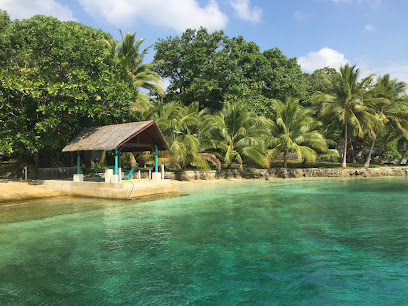
Pacific Dive
Explore the vibrant underwater world of Vanuatu with Pacific Dive – the premier scuba tour agency in Luganville, offering unforgettable diving experiences.
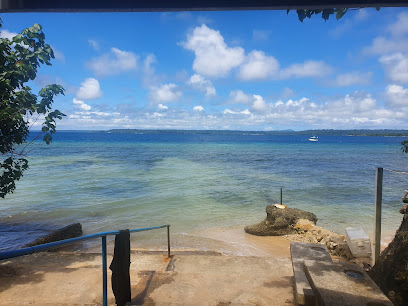
Lapita Beach Aore Island
Experience the tranquil beauty of Lapita Beach, Aore Island, where azure waters meet golden sands for the perfect getaway in Vanuatu.
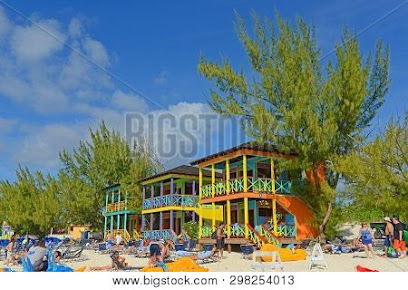
Taffuntari Waterfall Tours
Experience the breathtaking beauty of Taffuntari Waterfall Tours, where nature and adventure seamlessly blend in the heart of Vanuatu.
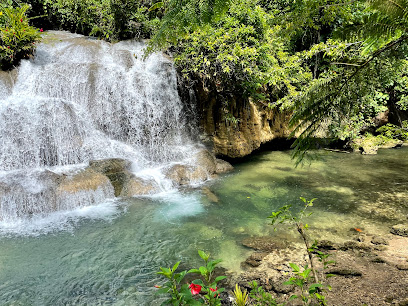
Leweton Cultural Experience
Discover the vibrant traditions of Vanuatu at the Leweton Cultural Experience, a captivating cultural center in Luganville showcasing authentic performances.
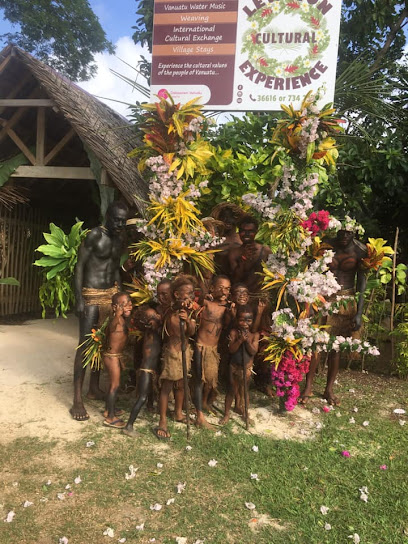
Pacific Dive - Dive Site
Dive into adventure at Pacific Dive in Luganville, where vibrant reefs and rich marine life await every scuba enthusiast.
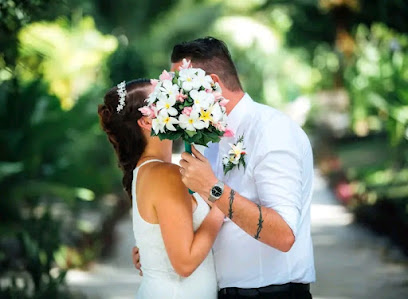
Jackie's Blue Hole
Explore the stunning natural beauty of Jackie's Blue Hole in Espiritu Santo, a must-visit destination for relaxation and aquatic adventures.
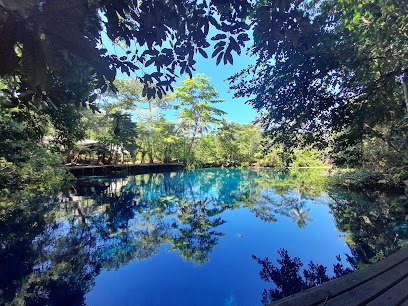
Bokissa Private Island
Discover paradise at Bokissa Private Island, where pristine beaches, vibrant marine life, and tranquility await every visitor.
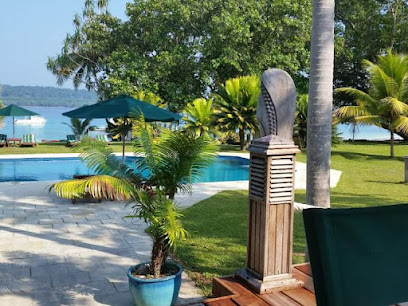
Nemo Bay Private Beach
Experience tranquility at Nemo Bay Private Beach in Sasuli, Vanuatu - a serene escape with pristine sands and crystal-clear waters.
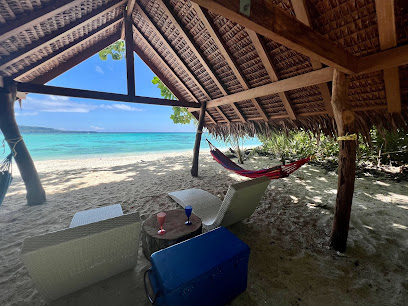
Thar Secret Blue Hole
Experience the tranquil beauty of Thar Secret Blue Hole, a hidden natural gem in Vanuatu, perfect for swimming and snorkeling amidst lush surroundings.
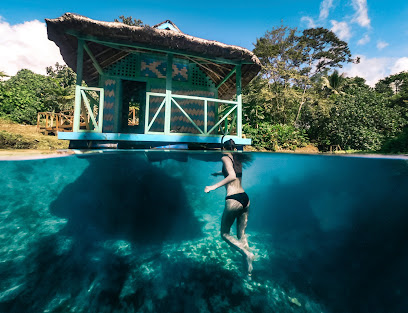
Najingo Harmony Park
Explore Najingo Harmony Park, a serene natural oasis on Tangoa Mainland, offering lush landscapes and tranquil waters perfect for relaxation and family outings.
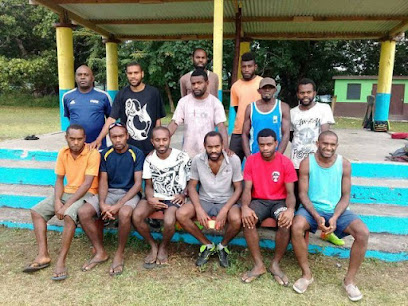
Loonè beach
Experience the pristine beauty and tranquil atmosphere of Loonè Beach, a tropical paradise in Duin Dui, Vanuatu, perfect for relaxation and adventure.
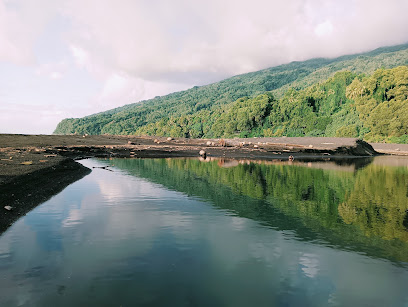
Essential places to dine
Turtle Bay Lodge, Restaurant and PADI Dive Centre
Experience culinary delights and thrilling aquatic adventures at Turtle Bay Lodge – your ultimate destination in Vanuatu.

The Espiritu Hotel
Experience comfort and charm at The Espiritu Hotel in beautiful Vanuatu – your gateway to adventure and relaxation.
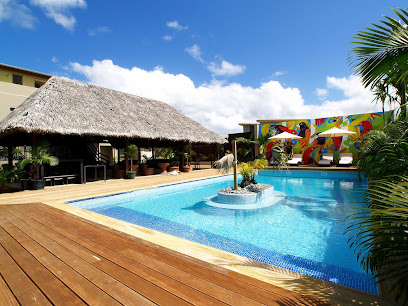
Natangora Cafe
Experience the vibrant flavors of Vanuatu at Natangora Cafe in Luganville - your perfect stop for relaxation and local cuisine.
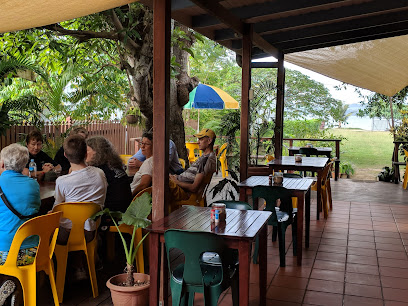
Chez Louis Restaurant
Experience authentic Vanuatuan cuisine with stunning coastal views at Chez Louis Restaurant in Port Olry.
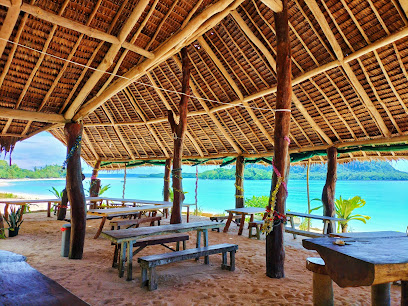
Deco Stop Lodge
Discover tranquility at Deco Stop Lodge in Luganville – where comfort meets stunning views and delicious cuisine.

Beachfront Resort
Experience luxury and adventure at Beachfront Resort in Luganville - your gateway to paradise in Vanuatu.

Village de Santo Resort
Discover serenity at Village de Santo Resort in Luganville - your perfect tropical getaway surrounded by nature's beauty.
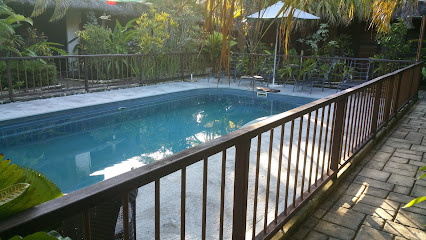
Attar Bakery and Cafe
Experience authentic Vanuatuan flavors at Attar Bakery and Cafe in Luganville – where every bite tells a story.
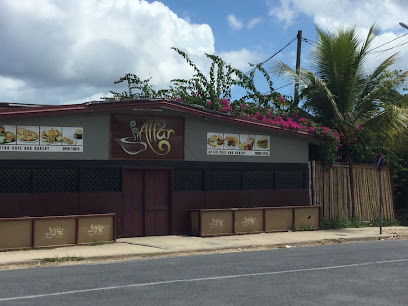
RK Indian Restaurant & Bar
Discover the vibrant flavors of India at RK Indian Restaurant & Bar in Luganville – where culinary tradition meets local hospitality.
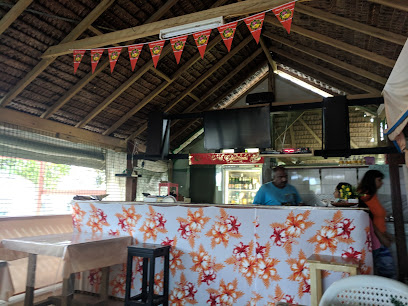
smugglers Seafood Restaurant & Bar
Discover fresh seafood and vibrant atmosphere at Smugglers Seafood Restaurant & Bar in Luganville - a true taste of Vanuatu's coastal culture.
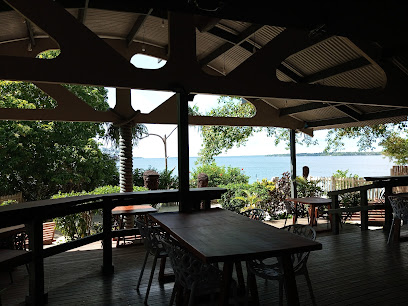
Hotel Santo
Discover Hotel Santo: A top-notch restaurant and hotel in Luganville offering local cuisine, vibrant nightlife, and serene accommodations.
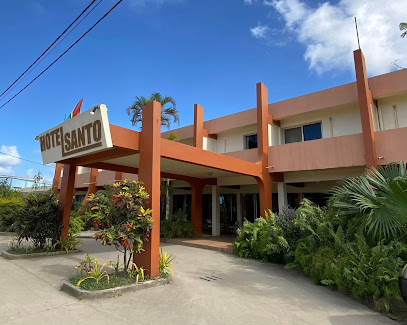
Tropicana Motel & Backpacker
Affordable comfort meets local charm at Tropicana Motel & Backpacker in Luganville - your gateway to exploring Vanuatu's stunning landscapes.

Meal Booths
Experience Luganville's vibrant culinary scene at Meal Booths – where fresh local flavors meet cultural richness.
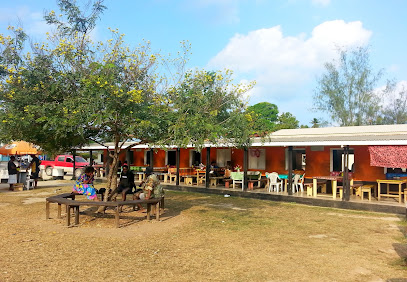
Luganvilla Business Hotel and Restaurant
Experience comfort and local charm at Luganvilla Business Hotel & Restaurant - your perfect base for exploring Vanuatu's stunning landscapes.

Si Chuan Restaurant And Takeaway
Discover authentic Sichuan cuisine at Si Chuan Restaurant in Luganville – where flavor meets tradition in every dish.
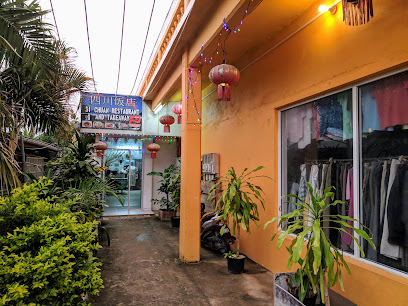
Markets, malls and hidden boutiques
LCM
Discover LCM grocery store in Luganville for a taste of local culture and fresh produce, perfect for all your travel needs.
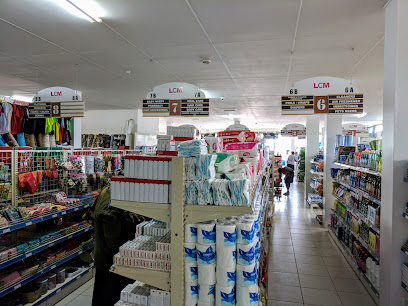
Luganville Local Market
Explore Luganville Local Market for a vibrant mix of fresh produce, local crafts, and the rich culture of Vanuatu in a lively marketplace atmosphere.
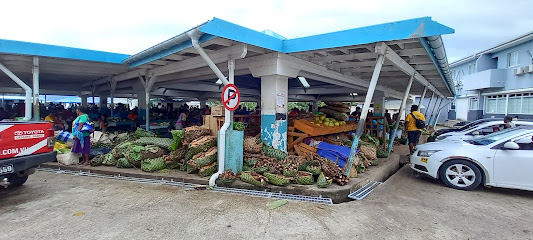
Santo Hardware
Explore Santo Hardware in Luganville for a unique selection of home goods and local artisan crafts that enhance your living experience.
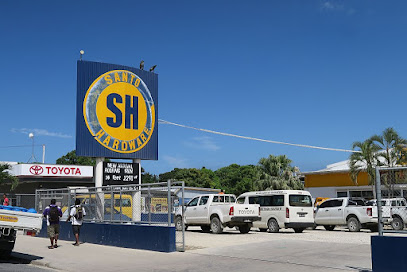
Lopo Store
Explore Luganville's vibrant Lopo Store for fresh produce, local delicacies, and a taste of Vanuatu's rich culinary culture.
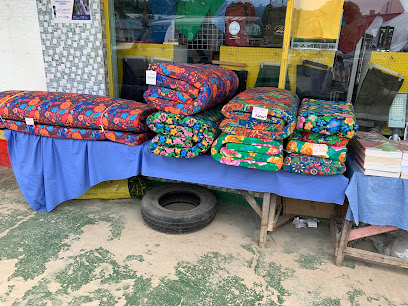
Daming Supermarket
Explore local flavors at Daming Supermarket in Luganville, where fresh produce meets unique culinary treasures for every traveler.

Chuan Store Sideriver
Experience the essence of Vanuatu at Chuan Store Sideriver, where local flavors and fresh produce await every traveler.

Op Shop
Explore Luganville's Op Shop for unique home goods and vintage treasures in a charming local setting.
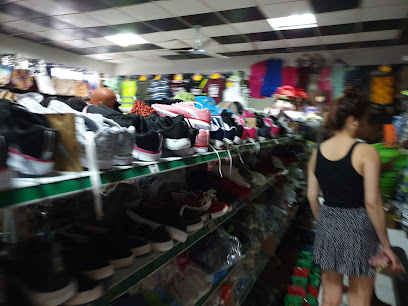
Wong Sze Sing Store
Discover the vibrant flavors of Vanuatu at Wong Sze Sing Store, Luganville's go-to grocery for local products and essentials.
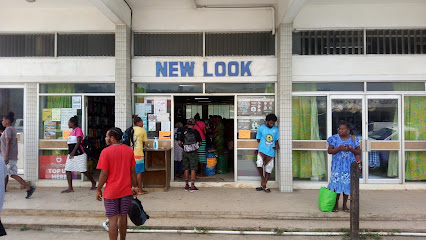
Daming Store
Explore Daming Store in Luganville for a unique shopping experience filled with local crafts, souvenirs, and a taste of Vanuatu's culture.
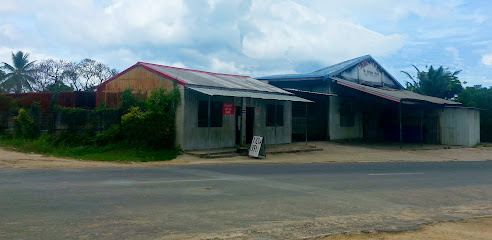
Bejomel Clothing
Discover unique fashion treasures at Bejomel Clothing in Luganville - a sustainable shopping experience awaits you!

NEW LOOK
Explore the vibrant variety store NEW LOOK in Luganville for unique souvenirs, local crafts, and everyday essentials that reflect Vanuatu's rich culture.
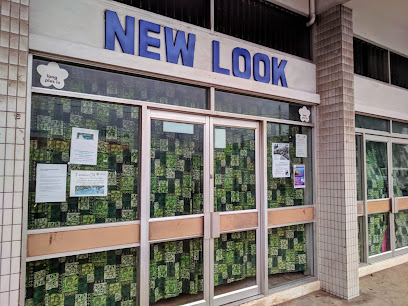
Michael Shao Store
Discover the authentic flavors of Vanuatu at Michael Shao Store in Luganville, your gateway to fresh produce and local culinary delights.
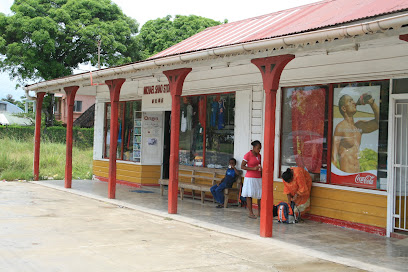
French Bakery
Experience the authentic flavors of France at Luganville's French Bakery, where every pastry is a taste of tradition and delight.
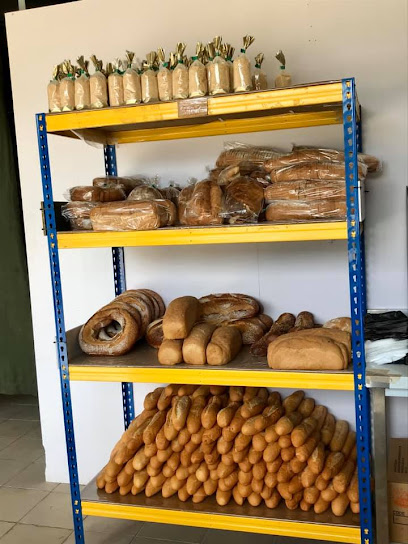
Sunshine Shopping
Discover a vibrant array of local crafts and souvenirs at Sunshine Shopping in Luganville, your go-to destination for unique Vanuatu treasures.

Moemoea
Explore the charm of Luganville at Moemoea, a second-hand store filled with unique treasures and local crafts, perfect for memorable souvenirs.
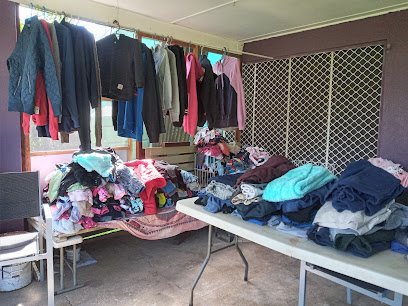
Essential bars & hidden hideouts
Deco Stop Lodge
Discover the charm of Deco Stop Lodge in Luganville, Vanuatu - a perfect blend of relaxation, adventure, and tropical beauty.

Attar Bakery and Cafe
Experience the delightful ambiance and scrumptious offerings at Attar Bakery and Cafe, a must-visit culinary treasure in Luganville.
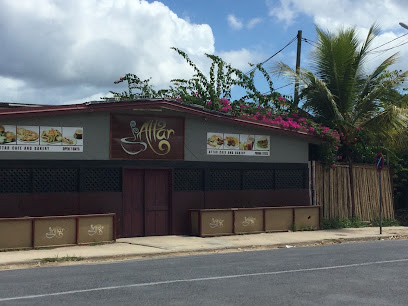
RK Indian Restaurant & Bar
Discover the authentic taste of India at RK Indian Restaurant & Bar in Luganville, where every dish tells a story of culinary tradition.
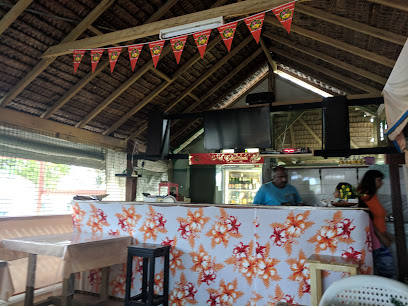
smugglers Seafood Restaurant & Bar
Discover the flavors of Vanuatu at Smugglers Seafood Restaurant & Bar, where fresh seafood meets breathtaking ocean views in Luganville.
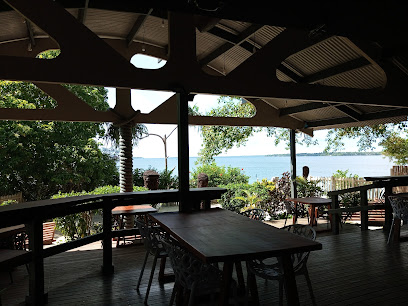
Hotel Santo
Discover the charm of Hotel Santo in Luganville, a relaxing retreat with a bar, restaurant, and pool, perfect for your Vanuatu adventure.
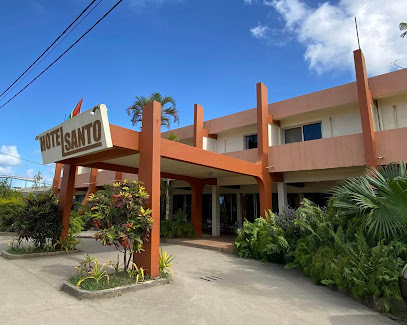
Meal Booths
Savor the vibrant local flavors at Meal Booths in Luganville, where culinary traditions meet fresh, island-sourced ingredients.
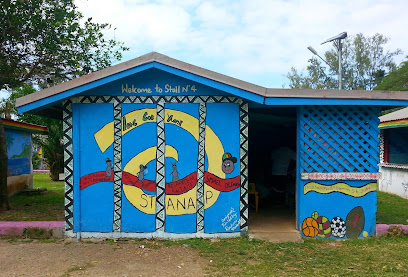
Deco Stop Restaurant
Discover the flavors of Vanuatu at Deco Stop Restaurant, where local cuisine meets stunning views in the heart of Luganville.
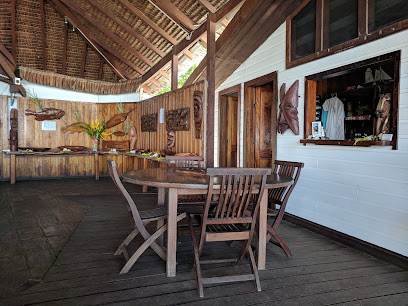
Mango Kava Bar
Discover the authentic taste of Vanuatu at Mango Kava Bar, where relaxation meets island culture in Luganville.
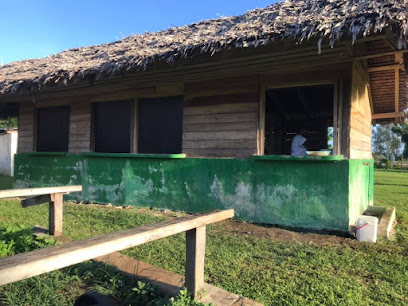
Rosie's in Luganville
Discover the vibrant flavors of Vanuatu at Rosie's in Luganville, where every meal is a celebration of local cuisine and island hospitality.
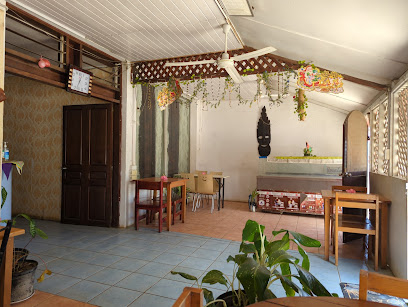
Natongtong Restaurant
Discover authentic Vanuatu cuisine at Natongtong Restaurant, where local flavors and warm hospitality come together in Luganville.
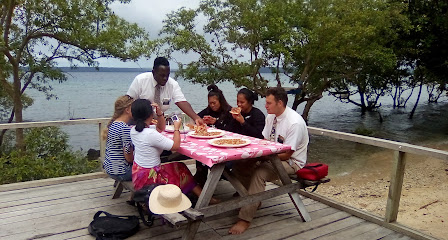
Red Corner Kava Bar
Experience the authentic taste of Vanuatu at Red Corner Kava Bar, where local culture meets relaxation and vibrant atmosphere.

Totel Kava Bar
Discover the essence of Vanuatu at Totel Kava Bar, where traditional kava meets vibrant local culture in a charming atmosphere.

WW2 Million Dollar Point Bar & Cafe
Discover a unique historical bar in Santo Vanuatu, where the past meets the present in a beautiful seaside setting.
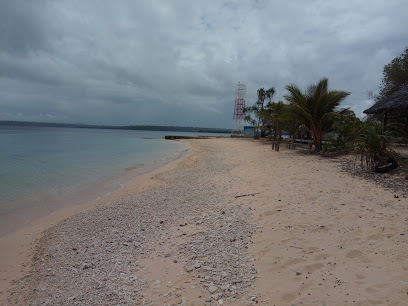
Temperere Kava bar
Experience the authentic taste of Vanuatu at Temperere Kava Bar, where relaxation meets local tradition in a vibrant setting.

Local Phrases
-
- HelloAllo
[ah-loh] - GoodbyeBayo
[bah-yoh] - YesIah
[ee-ah] - NoTale
[tah-leh] - Please/You're welcomePlis
[plees] - Thank youTankiu
[tahn-kyoo] - Excuse me/SorrySori
[soh-ree] - How are you?Yu stap gut?
[yoo stap goot] - Fine. And you?Bikos mi gut. O yu?
[bee-kohs mee goot. oh yoo] - Do you speak English?Yu save toktok long Inglish?
[yoo sah-veh tohk-tohk long eeng-leesh] - I don't understandMi no save
[mee noh sah-veh]
- HelloAllo
-
- I'd like to see the menu, pleaseMi wantem lukluk long menu, plis
[mee wahn-tehm look-look long meh-noo, plees] - I don't eat meatMi no kakae meet
[mee noh kah-kah-eh meet] - Cheers!Hem blo yu!
[hehm bloh yoo] - I would like to pay, pleaseMi wantem peim, plis
[mee wahn-tehm paym, plees]
- I'd like to see the menu, pleaseMi wantem lukluk long menu, plis
-
- Help!Helpem mi!
[help-em mee] - Go away!Go we!
[goh weh] - Call the Police!Kolem Polis!
[koh-lehm poh-lees] - Call a doctor!Kolem dokta!
[koh-lehm dohk-tah] - I'm lostMi les
[mee lehs] - I'm illMi sik
[mee seek]
- Help!Helpem mi!
-
- I'd like to buy...Mi wantem bae...
[mee wahn-tehm by...] - I'm just lookingMi jes lukluk
[mee jehs look-look] - How much is it?Hao mami ia?
[how mah-mee yah] - That's too expensiveHem tufala espensiv tumas
[hehm too-fah-lah es-pehn-seev too-mahs] - Can you lower the price?Yufala ken jasim prais?
[yoo-fah-lah kehn jah-seem price]
- I'd like to buy...Mi wantem bae...
-
- What time is it?Hao taim ia?
[how tah-eem yah] - It's one o'clockIa i wan o'klak
[yah ee wahn oh-klok] - Half past (10)Haf past i ten
[hahf past ee tehn] - MorningMornin
[mohr-neen] - AfternoonAftanun
[ahf-tah-noon] - EveningIvinin
[ee-vee-neen] - YesterdayIstad
[ees-tahd] - TodayTude
[too-deh] - TomorrowTamara
[tah-mah-rah] - 1Wan
[wahn] - 2Tu
[too] - 3Tri
[tree] - 4Fo
[foh] - 5Faev
[fah-ev] - 6Siks
[seeks] - 7Seven
[seh-vehn] - 8Eit
[ayt] - 9Nain
[nayn] - 10Ten
[tehn]
- What time is it?Hao taim ia?
-
- Where's a/the...?Wea hemi...?
[weh-ah heh-mee] - What's the address?Hao nom hemi?
[how nohm heh-mee] - Can you show me (on the map)?Yu save soem mi (long map)?
[yoo sah-veh soh-em mee long map] - When's the next (bus)?Hao nao hemi next (bisi)?
[how now heh-mee nekst bee-see] - A ticket (to ....)Wan tiket (long ....)
[wahn tee-keht long]
- Where's a/the...?Wea hemi...?
History of Luganville
-
Before European contact, Luganville and the surrounding Espiritu Santo island were inhabited by Melanesian people for thousands of years. The indigenous communities developed complex societies with unique languages, traditions, and customs. Archaeological evidence indicates long-standing trade networks and agricultural practices that sustained these early settlements.
-
The first recorded European to sight Espiritu Santo was the Portuguese explorer Pedro Fernandes de Queirós in 1606. Queirós named the island 'La Austrialia del Espiritu Santo,' believing he had found the long-sought Terra Australis. His brief stay marked the beginning of European interest in the region, though it would be centuries before sustained contact was established.
-
In the late 19th century, both the British and the French showed interest in the New Hebrides, leading to the establishment of the Anglo-French Condominium in 1906. This unique form of joint colonial administration lasted until 1980. Luganville, due to its strategic location and harbor, played a significant role during this period as a center of administration and commerce.
-
During World War II, Luganville became an essential base for Allied forces in the Pacific theater. The United States established a major military base here in 1942, transforming the town into a bustling hub of activity. Infrastructure such as roads, airstrips, and hospitals were rapidly constructed. The remnants of this era, including Quonset huts and the Million Dollar Point where surplus military equipment was dumped into the sea, remain as historical landmarks.
-
After World War II, Luganville returned to a quieter pace of life but continued to develop as a key economic and administrative center in Vanuatu. The infrastructure left by the Allies provided a foundation for growth, and the town gradually expanded its facilities and services, becoming a vital port and hub for the northern islands.
-
Vanuatu gained independence from the British and French in 1980. Luganville, as the second-largest town in the newly formed nation, played a critical role in the transition. The town has since grown, balancing its rich historical legacy with modern developments. It remains a vibrant community with a mix of indigenous and expatriate influences, contributing to its unique cultural tapestry.
-
Luganville is not only a historical landmark but also a cultural hub. The town hosts various festivals that celebrate the diverse heritage of Vanuatu, such as the Santo Rodeo and Independence Day celebrations. Traditional dances, music, and ceremonies are regularly performed, offering a glimpse into the rich cultural traditions of the island's inhabitants.
Luganville Essentials
-
Luganville is located on the island of Espiritu Santo in Vanuatu. The main gateway to Luganville is through the Santo-Pekoa International Airport (SON), which has regular flights from Port Vila, the capital of Vanuatu, and other regional destinations. Air Vanuatu is the primary airline servicing these routes. Alternatively, travelers can reach Luganville via inter-island ferries and cargo ships that connect from other islands in Vanuatu.
-
Luganville is relatively small, and many attractions are within walking distance. For longer trips, taxis are readily available and are a convenient way to get around. Additionally, minibuses operate within the town and connect to nearby areas. Car rentals are available for those who prefer to explore the island at their own pace, but be aware that road conditions can vary, especially outside the town.
-
The official currency in Vanuatu is the Vanuatu Vatu (VUV). Credit cards are accepted in some hotels, restaurants, and larger shops in Luganville, but it is advisable to carry cash, especially for smaller establishments and markets. ATMs are available in Luganville, but it is wise to withdraw sufficient cash in Port Vila or upon arrival to ensure you have enough funds for your stay.
-
Luganville is generally a safe destination for tourists. However, like any travel destination, it is advisable to take standard precautions. Avoid walking alone at night in unfamiliar areas and keep an eye on your belongings in crowded places. While there are no specific high-crime areas targeting tourists, it is always best to stay vigilant and aware of your surroundings.
-
In case of emergency, dial 112 for immediate assistance. Luganville has a police station and medical facilities, including the Northern Provincial Hospital. It is recommended to have travel insurance that covers medical emergencies. For minor health issues, there are pharmacies in the town where you can purchase over-the-counter medications.
-
Fashion: Do dress modestly, especially when visiting villages or religious sites. Avoid wearing very revealing clothing. Religion: Do respect local customs and traditions. Always ask for permission before entering a village or taking photos of people. Public Transport: Do be respectful and considerate to fellow passengers. Don't eat or drink on public transport. Greetings: Do greet people with a friendly 'hello' or 'good day.' A handshake is also common. Eating & Drinking: Do try local delicacies and accept food offerings graciously. Don't refuse hospitality, as it is considered impolite.
-
To experience Luganville like a local, visit the local markets, such as the Luganville Market House, where you can buy fresh produce and traditional Vanuatu goods. Engage with locals, who are often friendly and willing to share stories about their culture and history. Don't miss exploring the Million Dollar Point, where you can see World War II relics, and the blue holes, which offer unique and stunning natural swimming spots. For a unique experience, consider joining a village tour to learn more about the traditional way of life in Vanuatu.
Trending Landmark in Luganville
Nearby Cities to Luganville
-
Things To Do in Norsup
-
Things To Do in Lakatoro
-
Things To Do in Lamap
-
Things To Do in Sola
-
Things To Do in Port Vila
-
Things To Do in Lenakel
-
Things To Do in Isangel
-
Things To Do in Lata
-
Things To Do in Hienghène
-
Things To Do in Tadine
-
Things To Do in Bourail
-
Things To Do in La Foa
-
Things To Do in Nouméa
-
Things To Do in Auki
-
Things To Do in Honiara





